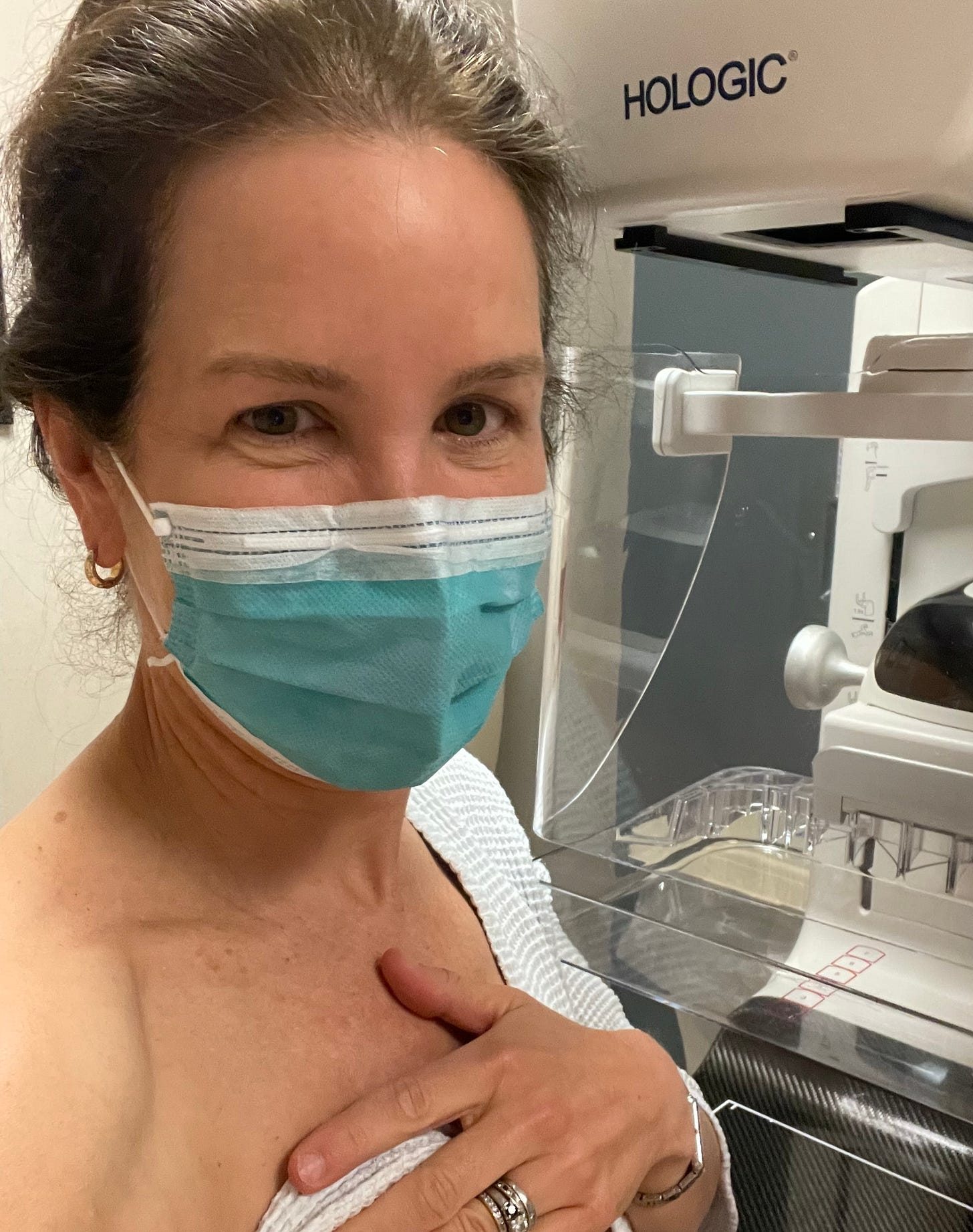Friday Q&A: new mammogram guidelines; vitamin D; men asking for help; & preventing caregiver burnout
You ask the best questions!
It’s Friday Q&A time!
In case you missed this week’s content:
Check out my newsletter: Can Humor Heal?
Tune into my podcast episode with Caitlin Murray about the heartbreak and humor around being a parent. ENJOY!
Don’t miss my recent Q&As on:
The first question today (about new mammogram guidance) is for all subscribers. The remaining questions (about vitamin D,, asking for help, and caregiver burnout) are for paid subscribers.
Click here to submit your questions (about anything) for future Q&A posts!
Let’s dive in!
QUESTION #1
What do you make of the new guidelines that say women should start getting mammograms at age 40?
-Jane
Dear Jane,
I think it’s about time! For women in the U.S., breast cancer is the second most common cancer (#1 is skin cancer) and is the second leading cause of cancer deaths (#1 is lung cancer).
On Tuesday, the U.S. Preventive Services Task Force (USPSTF) said that women at average risk for breast cancer should start getting regular mammograms starting at age 40. This is a departure from the group’s prior recommendation, in place since 2009, to treat mammography as an individual decision until women are 50.
Before 2009, and in fact, since the USPSTF began issuing recommendations on mammography in 1989, the recommendation was that women aged 40 and over should get regular mammograms. Thus, the new recommendation is a reversion to the pre-2009 guidelines.
Why the updated recommendation? In recent years, there has been an increase in breast cancer diagnoses for women under 50. Additionally, the racial gap in breast cancer deaths has not decreased—younger Black women are 2x more likely to die from breast cancer than same-aged white women.
Thus, the recommendation is especially important for Black women, who, overall, are 40% more likely to die from breast cancer than white women.
The data are clear: the potential benefits of detecting an otherwise undetected breast cancer outweigh the potential harms of mammography, such as the risk of radiation exposure or getting a false positive test result. Note that the amount of radiation exposure during a mammogram is equivalent to 7 weeks of the radiation we are exposed to in our everyday lives. On the other hand, over 40% of breast cancer cases are discovered via mammograms.
The upshot? Women should begin breast cancer screenings in their 40s.
If you find this helpful, hit the ❤️ button on this post so more people can discover my writing on Substack! 🙏
QUESTION #2
What advice do you have for people with low vitamin D? My vitamin D has been low for two years in a row, presumably because of my darker skin and sunscreen use. But I get queasy when I take vitamin D pills. I want to protect my bones, mood and immune system. Help!
-Tamara
Keep reading with a 7-day free trial
Subscribe to Are You Okay? to keep reading this post and get 7 days of free access to the full post archives.


